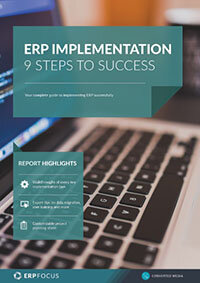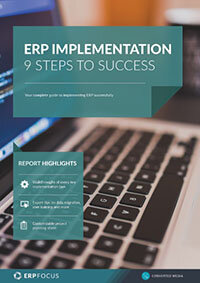4 Key Skills for ERP Project Managers
Lupe is one of a number of people who management is considering for the ERP project manager position. The legacy ERP system is worn out after many years of use and all agree it is time for a replacement. The selection of a project manager is vitally important to the health of an ERP selection and implementation, so what are the characteristics that make Lupe a great candidate?
1. Experience
Lupe has led teams successfully in the past and has learned each time from her experiences (and mistakes). She has an adequate background in IT issues. She isn’t an expert in managing a network and her programming skills are only at a basic level but she does have an overall understanding of the processes involved in managing data flow and reporting on that data. Lupe is also an accomplished user of the legacy ERP and people from all disciplines come to her for knowledge and problem-solving.
2. Decision-making
Many decisions will need to be made during the project. Lupe knows that no matter how well the project is laid out, grey areas will be uncovered and choices will need to be made. Any ERP project manager first needs to recognize when one of the grey areas appears and quickly determine if a choice can be made immediately or if further deliberation is needed. Either way, there will be team members on the losing side who must be convinced the choice is for the good of the whole enterprise. An ERP project manager must also moderate the egos of those on the winning side of these decisions.
3. Leadership
Leaders are people who inspire followers. People follow ERP project managers they like and respect. This is not the same as being commanded to perform project tasks. Lupe already has her followers, developed through her past as an ERP user and manager of several smaller projects. Implementing an ERP, like any project, can be completed on time and within budget when led by a strong commander.
Recommended Reading: 11 Steps to a Successful ERP Implementation
4. Communication
Lupe can communicate enterprise decisions well and has made presentations to senior management that were well thought of. She knows that much of communication is really a case of translation. The issues brought from the ranks of ERP users will need to be communicated in a way that an executive understands and the required translation must often work in both directions and between departments. She is a storyteller. She presents issues so they can be felt, seen, and heard by others. Lupe is skilled at keeping the final goal in front of the team at all times, regardless of the complexity of the day’s problems.
Lupe gets my vote. She might not be available to manage your project but these are the skills you should look for during your search for an ERP project manager.
Free white paper

ERP Implementation: 9 steps to success
The 9 proven steps you should follow when implementing ERP

Related articles
-

ERP training, and how to train the trainer
Internal or external training - what would be best for your business?
-

Secret KPI: Why Your ERP Implementation Team Matters More Than Software
Learn how Godlan ensures successful ERP implementation for manufacturers with proven strategies &...
-

Four qualities to look for in a good ERP superuser
Use these criteria to pick the best ERP superusers for your workforce

